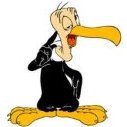Russia's Medvedev slams U.S. for Cuba embargo during Havana trip
-
Recently Browsing 0 members
- No registered users viewing this page.
-
Topics
-
-
Popular Contributors
-
-
Latest posts...
-
7
Trump and Epstein
Donald J. Trump has become the thing he most rails against: the Deep State. -
34
SIM card and Bank.
True shops have dedicated counters for DTAC. The DTAC shops still exist. Numbers and promotions from DTAC didn't change. True has to continue this for 3 years. What will happen after 3 years, nobody knows. DTAC numbers may not automatically become True numbers, but you can port them (and get a True promotion which costs twice as much as a DTAC one) -
367
UK Macron Blames Brexit for Channel Migrant Surge as UK-French Deal Faces Turmoil
Exactly, the first safe county is the one where they should claim asylum. Although I would question that France if the first safe country they they reached. Any EU country should be as safe as the next one. Which countries did the go through to get to France? -
77
Israel leveling Gaza
Let's stay focused. You write Bull<deleted>, which means that you do not accept that the Gazan casualties are comprised of military and associated personnel. You have no interest in acknowledging that reality. Instead you have created another new identity with which to bombard the forums with your pro-Hamas propaganda. Gaza was its own entity. It was Hamas that slaughtered the Fatah personnel and it was Hamas that has refused to hold an open election. It wasn't Israel firing missiles into Gaza. It was Hamas that fired missiles into israel everyday and that did not respect a ceasefire agreement that was in place. There is no Apartheid. You obviously do not understand what Apartheid means. Israeli Arabs have full rights. Arabs who are not Israeli and do not accept the state of Israel, and who consider themselves under the control of the PLA or Hamas governments and who live in their self governed zones are not israelis and cannot expect, nor demand the right to vote in Israel. The reason why Gazans and PLA residents are not allowed free access into greater Israel is because they are not citizens of Israel, and because of their past history of terrorism. Your demand is the same as demanding free access to Iraq for Iranians, or Free access to Germany for Syrians. -
68
Bombshell: Obama & Crew knew all along, Russia Russia was a hoax.
Both are NO, unless you want to go with the few thousand of dollars in Apparent FB memes.. this thread Is exposing the whole Russia hoax, just the brainwashed refusing to admit you were lied to, fooled, made fools of, and are fools for still believing it all the lies.- 1
-

-
31
Report Paetongtarn Shinawatra Vows to Restore Faith in Thai Buddhism
Dont look at me or into my shady dealing! Look at the monk over there smoking cigs and drinking booze.
-
-
Popular in The Pub


.thumb.jpeg.d2d19a66404642fd9ff62d6262fd153e.jpeg)






Recommended Posts
Create an account or sign in to comment
You need to be a member in order to leave a comment
Create an account
Sign up for a new account in our community. It's easy!
Register a new accountSign in
Already have an account? Sign in here.
Sign In Now